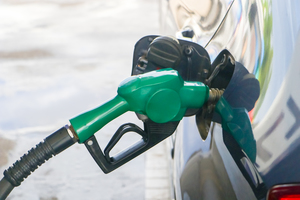Bellis’ purchase of Asda raises some competition concerns
News story
The CMA has found that Bellis’ completed £6.8bn purchase of Asda could lead to higher petrol prices in some parts of the country.

The Issa Brothers and private equity firm TDR Capital purchased Asda through jointly owned company Bellis. The Issa Brothers and TDR Capital also own EG Group, which operates 395 petrol stations in the UK, while Asda owns 323. Many of Asda’s and EG’s petrol stations are located in the same parts of the UK and the investigation by the Competition and Markets Authority (CMA) therefore focused on these overlaps.
The CMA has found that the deal raises local competition concerns in relation to the supply of road fuel in 36 areas across the UK and the supply of a specific type of fuel – called auto-LPG – in a further area. It is therefore concerned that the merger could lead to higher prices for motorists in these locations.
Joel Bamford, Senior Director of Mergers, said:
Our job is to protect consumers by making sure there continues to be strong competition between petrol stations, which leads to lower prices at the pump. These are two key players in the market, and it’s important that we thoroughly analyse the deal to make sure that people don’t end up paying over the odds.
Right now, we’re concerned the merger could lead to higher prices for motorists in certain parts of the UK. However, if the companies can provide a clear-cut solution to address our concerns, we won’t carry out an in-depth Phase 2 investigation.
The buyers now have 5 working days to offer legally binding proposals to the CMA to address the competition concerns identified. The CMA then has a further 5 working days to consider whether to accept any offer instead of referring the case to a phase 2 investigation.
There is further information about this investigation on the Bellis Acquisition Company 3 Limited/Asda Group Limited case page.
Notes to editors
- Auto-LPG stands for automatic liquified petroleum gas.
- The CMA launched its Phase 1 review of the deal on 8 December 2020. The European Commission referred the deal to the CMA after a request from the companies under Article 4(4) of the EC’s Merger Regulation.
- In terms of its remit, the CMA can only investigate how a merger may impact on competition in the relevant market(s) and ultimately whether the deal has a detrimental effect on consumers.
- All media enquiries should be directed to the CMA press office by email on press@cma.gov.uk, or by phone on 020 3738 6460.
Published 20 April 2021